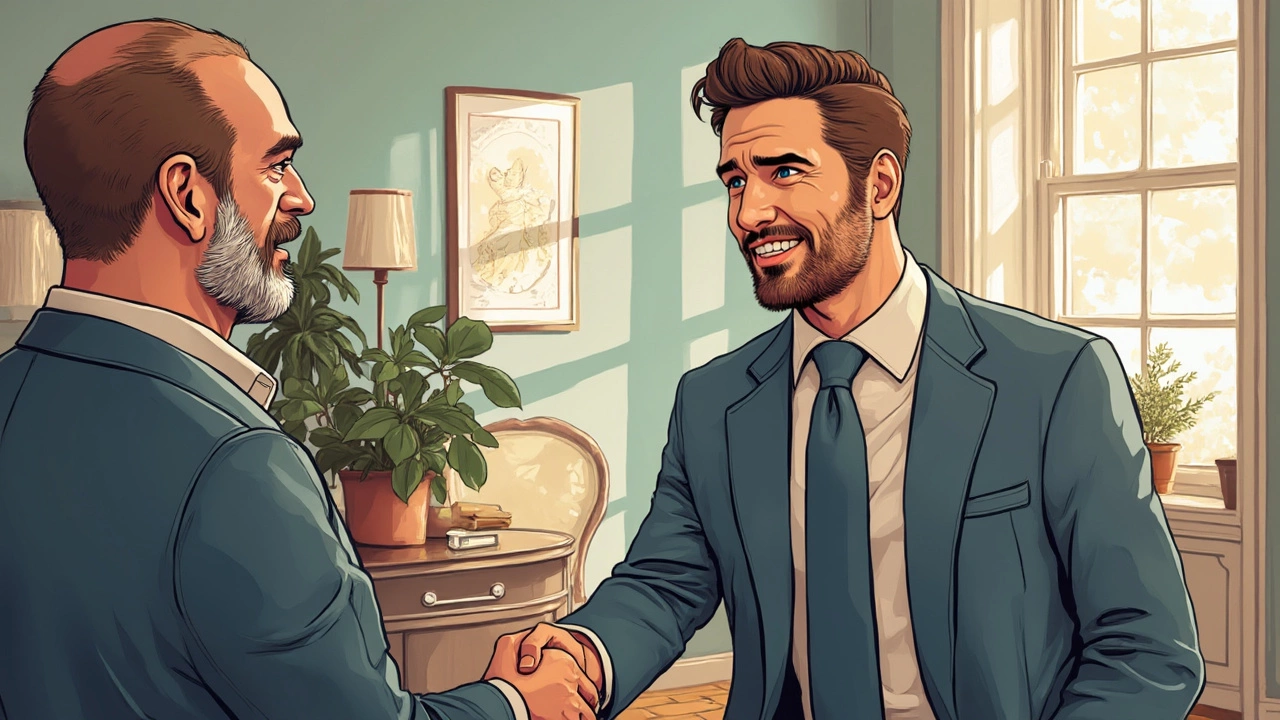Picture the classic image of the modern man: dialled in at work, stylish, composed, gym bag slung over his shoulder. For all that control, relationships—the real backbone—can still leave even the most grounded man feeling adrift. A single run-in or tense conversation, and it’s clear: the ability to thrive with another person requires more than cool-headed logic or bravado. This isn’t about weakness; it’s about evolving. Professional therapy, once a hush-hush subject, is now the not-so-secret advantage behind balanced, sustainable partnerships. Men in their prime—career-focused, ambitious, self-aware—are increasingly finding that therapy is as vital in their toolkit as a tailored jacket or a firm handshake. When done well, it’s not a sign that things are failing, but that you value what you’ve built enough to protect and invest in it.
Why Smart Men Choose Relationship Therapy
Gentlemen with a growth mindset don’t leave things to chance, especially when it comes to matters of the heart. High-achieving men often invest in everything—career coaching, bespoke suits, high-end grooming—so why not the relationships closest to them? It’s not about sitting on a couch rehashing old arguments or being psychoanalyzed into oblivion. Relationship therapy today is outcome-focused, practical, and refreshingly approachable. Studies published in the Journal of Marital and Family Therapy have shown that over 70% of couples who undergo therapy report an improvement in relationship satisfaction. That’s not marginal: that’s transformative.
It’s natural for men to think they can handle things alone. There’s a certain pride in fixing what’s broken—a trait as old as father-son advice over a workbench. But facing entrenched patterns and communication impasses? Sometimes the most accomplished men encounter roadblocks their toolsets weren’t designed for. Therapy offers a safe, discreet environment to untangle these challenges, replacing defensiveness with curiosity, assumptions with clarity. In essence, it’s like having a seasoned coach in your corner, ready to call out blind spots you’d otherwise miss.
The biggest misconception is that therapy begins and ends with couples in crisis. Many high-functioning partnerships use therapy proactively—like tuning up a classic car before the engine stutters. For men who value efficiency, this makes sense: identifying small misalignments early prevents them turning into complex breakdowns later. It’s also about agency: taking deliberate steps to grow, rather than waiting for outside events to dictate the narrative of your relationship.
Consider this: the average couple waits nearly six years after the onset of significant conflict before seeking help, according to Dr. John Gottman, an authority in relationship psychology. That’s nearly a decade of letdowns and missed connection, easily avoided with early intervention. For modern men who’ve seen their own fathers or mentors struggle privately, this new openness is both liberating and pragmatic.
| Therapy Outcome | % of Couples Reporting Positive Change |
|---|---|
| Improved communication | 75% |
| Better conflict resolution | 64% |
| Increased emotional intimacy | 67% |
| Stronger overall satisfaction | 72% |
Another subtle benefit? Time well spent. Sessions typically last under an hour, often every few weeks at the height of busy season, and can be virtual to fit around unpredictable diaries. It’s not nearly as intrusive as it might seem, and the ROI—both personally and relationally—is hard to dispute.

How Therapy Strengthens Connection and Communication
Ever felt as though you and your partner were speaking entirely different languages, even when the words were clear? You’re not alone. Research from the American Psychological Association reveals communication breakdown as the primary driver of relationship dissatisfaction. But this doesn’t mean you’re doomed to repeat the same dance. Therapy demystifies the art of communicating—teaching skills, not just venting frustrations.
At its core, relationship therapy is about translating inner experiences into words your partner can grasp. Men, taught for generations to keep things stoic or bottled up, often discover through therapy that vulnerability isn’t weakness but actual strength. A good therapist doesn’t force disclosure—they create a space where you feel heard, respected, and, most importantly, in control of your narrative. In this context, emotional insight sits comfortably with logic and practicality.
Here’s the interesting part: therapy isn’t only about fixing what’s wrong. It can help strong couples reach even higher, moving from good to exceptional. Picture two colleagues who already work well together but want to sharpen their performance—relationship therapy functions much the same way. You learn to anticipate patterns in yourself and your partner, deploy empathy even under stress, and articulate needs before resentment can build.
Let’s talk tools. Therapists use proven frameworks—like active listening exercises and empathy drills—that can be practiced outside the session. One practical tip: next time you disagree, try reflecting your partner’s point back before defending your own. This tiny shift, championed in well-regarded programs such as Imago Relationship Therapy, dramatically reduces defensiveness and increases mutual understanding.
For ambitious men, it’s helpful to view therapy as personal development. After all, you’re training to master the dynamics that underpin trust—not just in love, but with colleagues, friends, even children. The payoff? A relationship with fewer blow-ups, more honest collaboration, and the mutual respect that comes from truly being seen.
- Set aside regular check-ins, even when things are going well, to normalize open conversation.
- Use direct but kind language. Phrases like “I feel…” or “I need…” lower defensiveness.
- Pace yourself. Not every discussion needs to reach a solution instantly; sometimes, mutual understanding is enough.
- Prioritize listening. The urge to ‘solve’ is strong, but validation is often what your partner needs most.
Don’t underestimate the role of non-verbal cues, either. Research suggests that over 50% of our communication is delivered through body language and tone. A calm, open stance, measured words, and composure can do more to cool tension than a thousand clever comebacks.
Therapy can even help you navigate intersections between work and home—an area modern men grapple with more than ever before. A late night at the office or stress over a deal can seep into private life; therapy arms you with boundaries and coping strategies, so ambition serves your relationship instead of undermining it.

The Enduring Impact: Building Resilience and Trust
Gentlemen who commit to the therapeutic process find that its influence goes beyond the obvious. Trust is the foundation of every strong relationship, but it’s also startlingly easy to erode. Therapy provides a structured arena to restore and renew faith in each other, especially after breaches—be they small lapses or serious betrayals.
Resilience is where therapy shines brightest. Picture a couple weathering life changes—career moves, parenthood, illness. Those who’ve invested in their relationship toolkit through therapy don’t just survive adversity; they support each other with dignity and intent. When one partner struggles, the other knows how to step in with empathy, not resentment or avoidance. For the modern man, this ability to respond—rather than react impulsively—is a hallmark of leadership and maturity.
It’s worth noting that the legacy of therapy doesn’t stop with romantic relationships. Sons, daughters, clients, and friends all benefit from a man who has mastered the arts of self-reflection, patience, and respectful dialogue. Quality relationships often reverberate through every sphere: mental health statistics show that men in healthy partnerships are less likely to experience depression, chronic stress, or substance abuse. This isn’t abstract or wishful—men who invest in their relationships are literally building better lives, day by day.
Images that come to mind could be subtle and strong: a pair of sleek, leather-bound notebooks on a spotless desk, two espresso cups mid-conversation, or a well-dressed couple walking in calm step. These visuals reflect the reality that investing in your relationship doesn’t have to be performative. It’s about quiet confidence, steady effort, and the willingness to own your part in the story.
For men thinking about taking the first step, consider this a nudge of encouragement. If you’ve already accomplished so much personally and professionally, why not devote equal energy to nurturing the partnership that frames your life? Therapy is not just for emergencies—it’s a chance to build, repair, and excel. The modern gentleman knows: real strength is revealed not through armor, but through the dedication to grow, connect, and lead with purpose.

